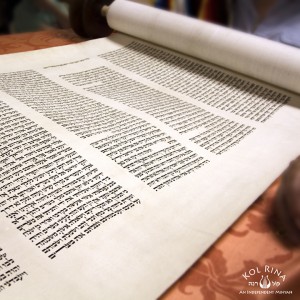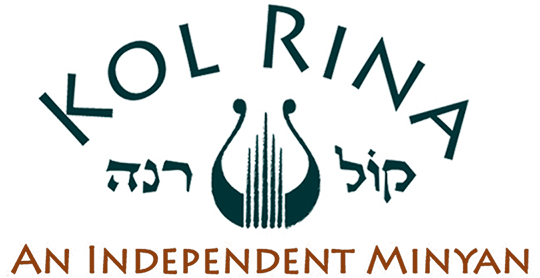Yom Kippur Divrei Torah– 5774/ 2013 Introduction to the Confessional-revised
by Treasure Cohen: [email protected]
Once a year–on Yom Kippur– we get an opportunity to look into a virtual mirror and examine our imperfections (and if we need help identifying them, the Vidui or confessional gives us both a short and long list of suggestions.) We confess our sins, ask God for forgiveness, and resolve to change.
 This year I got a head start. This summer, with a gift certificate provided by our children to the local Pilates exercise studio, I went for a full body assessment. I had to look in the mirror, and was then given an analysis of my imperfections–many of which I was not even aware of: I do not stand up straight, my spine is crooked, and I have weak core muscles–and that just for starters. I was told that if I didn’t make changes, things would only get worse– but if I did, I could start to turn things around–or in the words of our tradition–do teshuva/ return.
This year I got a head start. This summer, with a gift certificate provided by our children to the local Pilates exercise studio, I went for a full body assessment. I had to look in the mirror, and was then given an analysis of my imperfections–many of which I was not even aware of: I do not stand up straight, my spine is crooked, and I have weak core muscles–and that just for starters. I was told that if I didn’t make changes, things would only get worse– but if I did, I could start to turn things around–or in the words of our tradition–do teshuva/ return.
Indeed, I resolved that I did not want to be a bent-over old lady, but hard as I tried, I could not seem to overcome what years of gravity and bad habits had wrought– the perpetual slouch. Every week I would go to the trainer and with more excuses than resolve, I would complain how hard it was, and she would assure me that change is gradual so I shouldn’t give up. It took several weeks before I actually had an understanding of what it even felt like to stand up straight. And only with that awareness could I begin to move forward.
Now, I know that on Yom Kippur we are not talking about posture or imperfections of body, but rather imperfections of behavior–yet I discovered that they employ the same vocabulary. Our tradition describes an exemplary person as “Yashar” or upright. The word for sin avone— literally means “bent or crooked.” And we refer to people who have stumbled or fallen–ethically as well as physically– as noflim. And to those of us in the middle– neither the yesharim nor the noflim, we are the k’foofim— the bent over, the slouchers– those who tend to resist change.
But this is a holiday about change. So for the past few months I have been looking for inspiration and motivation to help me make changes, both physical and spiritual, in my life. One came from a friend at a women’s study group. Every session started with an ice-breaker and this one was “advice from your mother;” Finish the sentence: “My mother always said . . .”: As we went around the circle, women responded: “Study hard,” “Be respectful,” “Mind your manners,” (“Wear clean underwear”) and when we got to Ellen, she said, “My mother always said stand up straight” and we laughed! But it wasn’t until now that I understand that her advice had a double meaning. Standing up straight is not only about good posture, good health, facing the world with confidence, it is also about aiming to be upright– yashar–adhering to strong moral principles, being righteous.
We try to aim high, but inevitably, at least sometime during the year, we will deviate from the straight and upright, to the bent and crooked, the avone–making mistakes– the theme of this confessional. Sometimes we are noflim–we fall, but–this I learned from hearing a dancer interviewed on NPR– what makes for success in dance, and in life, is the ability to fall and get up again. From experience, we know that stumbling often provides the most long-lasting lessons. And therefore our mistakes can be our best teachers, helping us to change and grow. And as our tradition says, God is there to help us: Every day we say in our prayers, God supports the fallen (somafe noflim) and raises up the bowed down, the slouchers (zokafe k’foofim).
But how do we bring about more long-lasting change? This is what I learned from my Pilates classes : You need to strengthen your core. In Pilates language, that means doing all sorts of exercises–pulls and stretches–to strengthen the muscles that help us to stand up straight. But in the language of Jewish tradition, it means improving our inner core–our hearts, souls, and minds– by adopting new behaviors and mitzvot that stretch us, strengthen us, and inform our actions. And every year on the High Holidays, we are given a prescription for enduring change: Teshuvah— return, Tefilah— prayer, and Tzedakah— deeds of lovingkindness and righteousness.
Paradoxically, I just learned that my Pilates Studio is closing its doors today–Yom Kippur, so I cannot be sure how well I will improve my posture this year. But I do know that my experience trying to improve myself over the past few months has given me insight into the process of teshuva/return, which I share with you today:
Strive to be upright, and try not to slouch;
Pick yourself up when you fall;
Learn from your stumbles;
and most important, Strengthen your core.
May we all be sealed for a good year– G’mar hatimah tovah, Shana Tova, and Shabbat Shalom!

